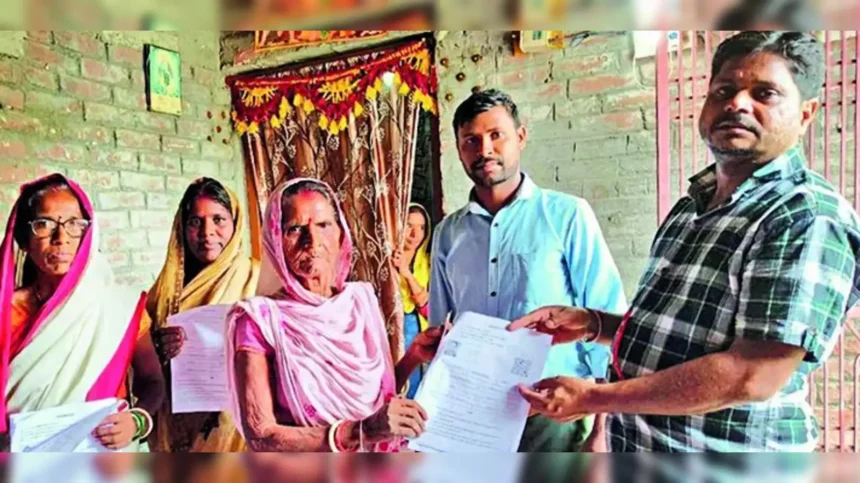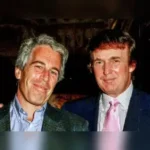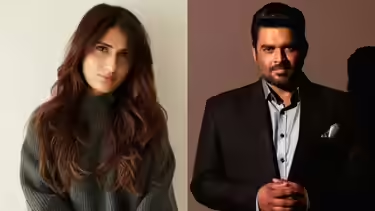Bihar’s SIR Law Sparks Constitutional Debate Over Election Rules
New Delhi: An administrative order from the Election Commission of India (ECI) on June 24, 2025, has started a process in Bihar that demands the most rigorous constitutional scrutiny. The ECI calls this ‘Special Intensive Revision’ (SIR) a routine measure to ensure clean electoral rolls.
But a close analysis of its legal basis reveals an enterprise that defies court rulings and violates the constitutional framework for elections in India.
The Supreme Court’s interim order on July 10, 2025, which suggested adding Aadhaar and EPIC as valid documents, offers a temporary fix. But basic questions over the SIR’s fundamental legality remain unaddressed.
A deep-dive into the structure of SIR has revealed four levels where the exercise fails to establish that it is in consonance with both, settled election law or constitutional principles.
1) Constitutional overreach
The ECI claims its authority for the SIR comes from Article 324 of the constitution. To see why this is wrong, we must understand the balance of power in electoral law.
Article 326. Elections to the House of the People and to the Legislative Assemblies of States to be on the basis of adult suffrage.
It states that elections “shall be on the basis of adult suffrage; that is to say, every person who is a citizen of India and who is not less than eighteen years of age… and is not otherwise disqualified under this Constitution or any law… on the ground of non-residence, unsoundness of mind, crime or corrupt or illegal practice, shall be entitled to be registered as a voter at any such election.”
Article 324. Superintendence, direction and control of elections to be vested in an Election Commission.
Clause (1) vests in the ECI the “superintendence, direction and control of the preparation of the electoral rolls for, and the conduct of, all elections…”
Article 326 is the Republic’s promise of voting rights to its citizens. Article 324 creates the machinery to fulfil that promise. The Supreme Court has repeatedly said the machinery cannot be used to destroy the promise.
The doctrine of the unoccupied field: Mohinder Singh Gill (1978)
In Mohinder Singh Gill vs. The Chief Election Commissioner, the Supreme Court’s Constitution Bench defined the scope of Article 324. It held that the ECI’s power is a “reservoir” that can only be used under specific limits. The court said:
“Article 324, in our view, operates in areas left unoccupied by legislation… Two limitations at least are laid on its plenary character… Firstly, when Parliament or any State Legislature has made valid law… the Commission shall act in conformity with, not in violation of such provisions but where such law is silent Art. 324 is a reservoir of power to, act for the avowed purpose of… pushing forward a free and fair election with expedition.”
The SIR fails this test. The process for preparing and revising electoral rolls is a field already covered completely by two laws: the Representation of the People Act, 1950 (RPA, 1950) and the Registration of Electors Rules, 1960. The ECI is not acting in an “unoccupied field”; it is displacing the existing legal structure with a new one of its own invention.
The ban on supplanting the law: A.C. Jose (1984)
The ruling in A.C. Jose vs. Sivan Pillai, concerning the ECI’s use of EVMs without a specific law, clarified this boundary. The Court held:
“(b) where there is an Act and express Rules made thereunder it is not open to the Commission to override the Act or the Rules… In other words, the powers of the Commission are meant to supplement rather than supplant the law…”
The SIR is a textbook case of supplanting the law. It imposes a new condition for voters to remain on the rolls—a retrospective re-verification of documents based on an arbitrary 2003 cut-off. This condition does not exist in the RPA, 1950. This is not a procedural clarification; it is a new eligibility rule, a legislative act the ECI is constitutionally forbidden from making.
The limits of “purification”: Kanhiyalal Omar (1985)
The ECI might argue the SIR is needed to ensure the “purity” of electoral rolls, a power the Court affirmed in Kanhiyalal Omar vs. R.K. Trivedi. But that judgment shows this power is not absolute. The court stated:
“The general powers of superintendence, direction and control of the elections vested in the Commission under Article 324(1) naturally are subject to any law made either under Article 327 or under Article 328 of the Constitution.”
The power to “purify” must be used through means the law provides. The law, specifically Section 22 of the RPA, 1950, and Rule 21A of the Registration of Electors Rules, 1960, establishes a specific, court-like process of individual claims, objections, and hearings. The SIR abandons this legal method for a mass re-verification drive, which is not a legal means of purification.
2) In defiance of what courts have laid down
SIR seems to contradict some binding court rulings.
The Lal Babu Hussein doctrine (1995): The definitive shield
The judgment in Lal Babu Hussein vs. Electoral Registration Officer is the definitive ruling here. The court was reviewing a mass drive to delete names from electoral rolls because of suspected non-citizenship. In striking down that drive, the court established a clear legal shield for every existing voter.
1. Two distinct situations: In Paragraph 6, the court drew a critical legal distinction between adding a name to the rolls for the first time and deleting a name that is already there.
2. Presumption of regularity for existing voters: For deleting an existing name, the court created a rule of presumption:
“In the second situation, since the name is already entered, it must be presumed that before entering his name the concerned officer must have gone through the procedural requirements under the statute.”
The SIR violates this rule. It refuses to grant this presumption to any citizen registered after 2003, treating them all as inherently suspect.
3. The burden of proof and a “meaningful” hearing: The court insisted on a fair process for deletion:
“If the opportunity of being heard before deletion of the name is to be a meaningful and purposive one… the concerned person… must be informed why a suspicion has arisen in regard to his status as a citizen of India so that he may be able to show that the basis for the suspicion is ill founded.”
The SIR’s method is the opposite. It first removes a person’s name from the draft roll for failing to provide documents, forcing them to appeal for re-inclusion later. This reverses the individual, pre-decision hearing the court requires.
4. Binding directions on future revisions: The court’s final orders were clear. Direction 3 states:
“If any person whose citizenship is suspected is shown to have been included in the immediately preceding electoral roll, the Electoral Registration Officer… shall bear in mind that the entire gamut for inclusion of the name… must have been undertaken and hence adequate probative value be attached to that factum before issuance of notice…”
By giving zero value to registrations made after 2003, the SIR is in direct contempt of this binding order.
The universality of natural justice: Binapani Dei (1967)
Long before these election cases, the Supreme Court established this core principle. In State of Orissa vs. Dr. (Miss) Binapani Dei, the Court held:
“It is true that the order is administrative in character, but even an administrative order which involves civil consequences… must be made consistently with the rules of natural justice after informing the first respondent of the case of the State… and after giving an opportunity to the first respondent of being heard…”
Losing the right to vote is one of the gravest “civil consequences.”
The SIR’s summary, mass process is a flagrant violation of this basic principle of our law.
3) EC not the right authority to decide citizenship
The EC is not the appropriate, or legally qualified body to conduct a mass enquiry into citizenship
The unfair procedure doctrine: Sarbananda Sonowal (2005)
In Sarbananda Sonowal vs. Union of India, the Supreme Court struck down the Illegal Migrants (Determination by Tribunals) Act, 1983. A key reason was that the Act created a procedure so unfair and burdensome that it was deemed arbitrary and unconstitutional. The court noted the Act created “insurmountable difficulties” in identifying illegal migrants.
If an entire Act of Parliament was struck down for creating an unfair procedure, a mere administrative order like the SIR, which creates an even more arbitrary process for citizenship verification, cannot be legal. It wrongly delegates a complex judicial function to untrained officials in a way that is manifestly unjust.
The competent authority under the Citizenship Act, 1955
As the Supreme Court noted in Lal Babu Hussein, Section 9(2) of the Citizenship Act, 1955, gives the power to decide questions of citizenship exclusively to a prescribed authority: the central government.
Section 9(2): “If any question arises as to whether, when or how any person has acquired the citizenship of another country, it shall be determined by such authority, in such manner, and having regard to such rules of evidence, as may be prescribed in this behalf.”
While an election officer can act on a finding that someone is not a citizen, the ECI cannot invent its own parallel system to conduct a mass investigation into this complex legal status. This is a fundamental jurisdictional error.
4) The assault on fundamental rights
The Right to Equality (Article 14): Article 14 forbids state action that is “manifestly arbitrary.” The SIR’s arbitrary 2003 cut-off date has no rational connection to the goal of a clean electoral roll. By creating two classes of citizens – the trusted and the suspect –the SIR is a textbook violation of equality.
The Right to Life with Dignity (Article 21): The test from Maneka Gandhi vs. Union of India (1978) requires any procedure affecting rights to be “fair, just, and reasonable.” The SIR fails this test. It is unfair in its documentary burden on the poor, unjust in its reversal of the burden of proof, and unreasonable in the ordeal it imposes.
The Right to Freedom of Expression (Article 19(1)(a)): In the PUCL case (2013), the Supreme Court affirmed that voting is a form of “freedom of speech and expression.” It held that “The casting of the vote is a facet of the right of expression.” Any state action that creates a “chilling effect” on this right is unconstitutional. By creating a climate of fear, uncertainty, and procedural harassment, the SIR is a powerful and unreasonable barrier to this fundamental freedom. A citizen worried about their legal status is a citizen whose political speech has been chilled.
Four levels where the Bihar SIR fails to establish that it is in consonance with settled election law and constitutional principles:
- Infringement of fundamental rights: The SIR is a direct assault on the constitutional guarantees of equality, life with dignity, and freedom of expression.
- Constitutional overreach: The ECI misuses its power under Article 324, crossing clear limits set by the Constitution and the Supreme Court.
- Defiance of settled law: The SIR directly and willfully violates binding court precedents on voter rights and due process.
- ECI not competent to determine citizenship: The ECI unlawfully seizes the authority to conduct a mass inquiry into citizenship.
An unconstitutional enterprise?
Serious questions hover over the constitutionality of the Special Intensive Revision in Bihar. It is an executive action that appears untethered with the rule of law, say experts.
The public debate, and the final court ruling, must consider questions on its foundational illegality. The issue is not whether the SIR’s details can be made less harsh. The issue is that the exercise itself and if it is in tune with constitutional rights.
Speaking to The Indian Express, political analyst Yogendra Yadav, who has been at the forefront of this debate, put the issue in stark constitutional terms.
“My principal objection is not about the practicalities, though they are farcical. The objection is to the very principle. This exercise is dismantling the architecture of citizenship that was the proudest achievement of our republic. What took 75 years to build – a democracy based on the presumption of inclusion – is being rolled back through a bureaucratic order. That is the foundational challenge.”
Also Read: BMC to Soon Begin Redevelopment of Major Mumbai Markets Including Dharavi & Crawford







